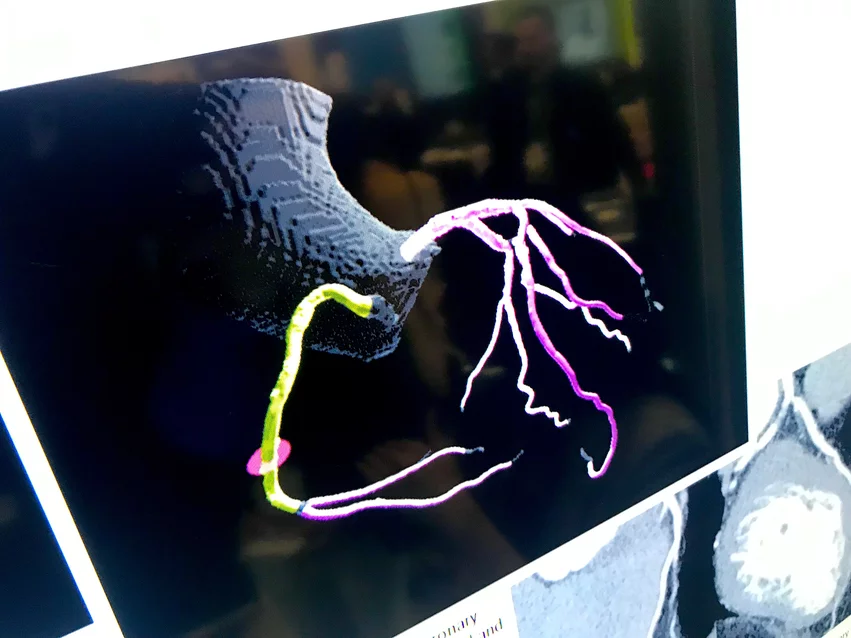AI-enabled plaque assessments help cardiologists ID high-risk CAD patients
Using advanced artificial intelligence (AI) platforms to assess imaging results and quantify coronary plaque buildup can help clinicians predict adverse events in patients with suspected coronary artery disease (CAD), according to late-breaking data presented at TCT 2024 in Washington, D.C.
AI-enabled coronary plaque assessments have gained significant momentum in recent months, receiving a new Category 1 CPT code from the American Medical Association in addition to expanded Medicare coverage through new local coverage determinations. For CONFIRM-2, researchers tracked data from more than 3,500 symptomatic patients from 13 different countries to provide a fresh look at how these advanced AI platforms can impact patient care. FDA-approved AI software from Denver-based Cleerly was used to evaluate coronary CT angiography (CCTA) images of these patients and assess their risks of experiencing an adverse cardiovascular event.
Overall, the study’s primary endpoint—a composite of all-cause mortality, myocardial infarction, stroke, congestive heart failure, late revascularizations and hospitalizations for unstable angina—were much more common in patients with high AI-guided Quantitative Coronary Computed Tomography Angiography (AI-QCT) scores than patients with low AI-QCT scores. This suggests that screening CCTA images of suspected CAD patients represents a quick, non-invasive way to anticipate when poor cardiovascular outcomes may occur.
One key takeaway from the group’s analysis was the fact that coronary CTA lumen diameter stenosis and noncalcified plaque volume were linked to the best overall performance at predicting major adverse events. By assessing these data for each patient, care teams can gain more information about patient risk than they typically have when using more traditional CAD risk scores.
Alexander R. van Rosendael, MD, PhD, a cardiologist with Leiden University Medical Center in the Netherlands, presented the study’s findings at TCT.
“This trial added additional evidence that analyzing lumen and plaque—regardless of using human intelligence or AI—can provide very important information on patient risk and selecting proper treatments,” he explained from the podium. “This study also showed the benefit of using AI, because we know how painful it can be to analyze all of those lumen and plaque metrics in larger patients.”
James K. Min, MD, founder and CEO of Cleerly, celebrated the importance of these late-breaking data in a company statement.
“The integration of AI in assessing coronary artery disease represents a transformative leap in our ability to predict and manage coronary heart disease-related events,” he said. “AI-QCT analysis of cardiac CT provides diameter stenosis percentages and an accurate view of non-calcified plaque volume based on millions of images. This research not only highlights the potential of AI to improve diagnostic accuracy but also the importance of early intervention in reducing the risk of serious cardiovascular events.”
Cleerly did fund this analysis. In addition, some researchers involved with this trial have prior financial relationships with Cleerly, though the company did not participate in designing the trial in any way.


